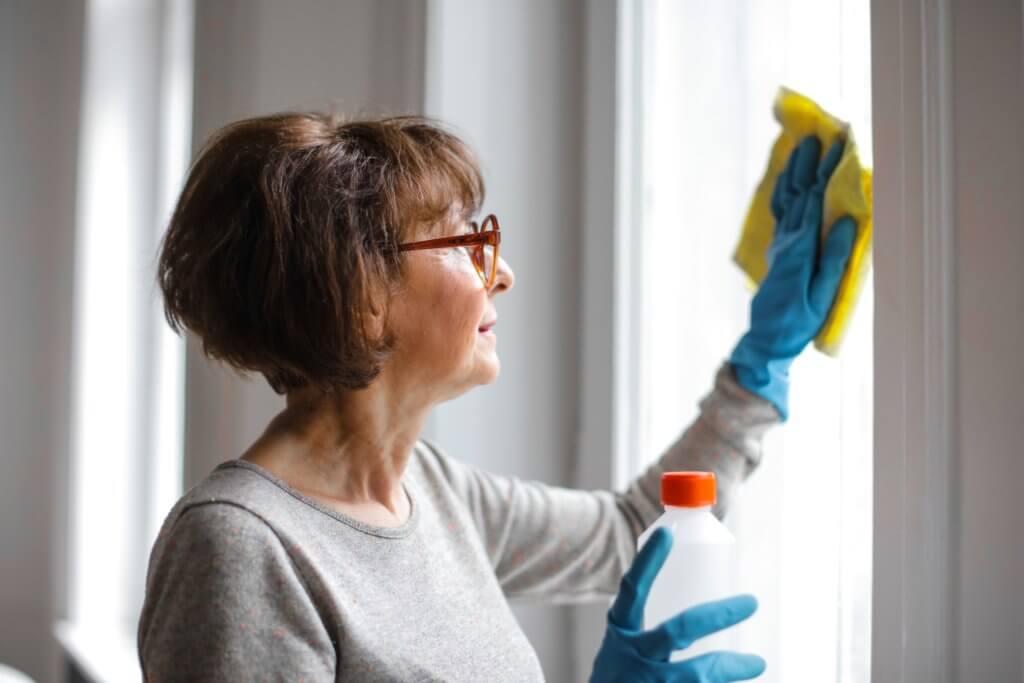PLYMOUTH, United Kingdom — Do expensive cleaning products really do a better job of sanitizing your home than a simple rag and some water? Shockingly, a new study finds the answer appears to be no. Astoundingly, study authors explain that chlorine-based chemicals aren’t any more effective at damaging bacterial spores than plain old water.
The most common cause of antibiotic associated sickness in healthcare facilities worldwide appears to be completely unaffected by one of the main chlorine disinfectants currently in use to clean scrubs and surfaces in countless hospitals. Researchers from the University of Plymouth revealed how spores of Clostridioides difficile, (C. diff) showed no signs of change despite being treated with high concentrations of bleach.
The research team concludes susceptible individuals working or being treated in medical facilities and clinical settings may be unknowingly placed at risk of contracting the superbug.
Consequently, the research team is calling for further, urgent research focused on identifying alternative strategies to disinfect C. diff spores in order to break this disturbing chain of transmission across clinical environments. After all, constantly re-using the same biocides is only helping fuel rises in antimicrobial resistance (AMR) worldwide.

Dr. Tina Joshi, an associate professor in Molecular Microbiology at the University of Plymouth, carried out this study with Humaira Ahmed, a fourth year Medicine student from the University’s Peninsula Medical School.
“With incidence of anti-microbial resistance on the rise, the threat posed by superbugs to human health is increasing. But far from demonstrating that our clinical environments are clean and safe for staff and patients, this study highlights the ability of C. diff spores to tolerate disinfection at in-use and recommended active chlorine concentrations. It shows we need disinfectants, and guidelines, that are fit for purpose and work in line with bacterial evolution, and the research should have significant impact on current disinfection protocols in the medical field globally,” Dr. Joshi says in a media release.
C. diff is a bacterium that causes diarrhea, colitis, and other bowel complications. It is known to infect millions of people all over the world each year, with close to half a million infections in the United States alone annually. Attributed to roughly 29,000 deaths per year in the U.S., and almost 8,500 in Europe, the most recent available data indicates the incidence of C. diff infection was increasing prior to the start of the COVID-19 pandemic in the United Kingdom.
Dr. Joshi and the team have already demonstrated the ability of C. diff spores to survive exposure to recommended concentrations of sodium dichloroisocyanurate in liquid form, and within personal protective fabrics such as surgical gowns, during earlier projects.
“Understanding how these spores and disinfectants interact is integral to practical management of C. diff infection and reducing the burden of infection in healthcare settings. However, there are still unanswered questions regarding the extent of biocide tolerance within C. diff and whether it is affected by antibiotic co-tolerance. With AMR increasing globally, the need to find those answers – both for C. diff and other superbugs – has never been more pressing,” Dr. Joshi, who is on the Microbiology Society Council and Co-Chairs their Impact & Influence Committee, concludes.
The study is published in the journal Microbiology.
You might also be interested in:
- Antibiotic-resistant bacteria contaminates an entire hospital ICU
- Disinfectant dangers: COVID boosted the use of unnecessary antimicrobial chemicals
- Home sweep home: Average American spends 300 hours a year cleaning

